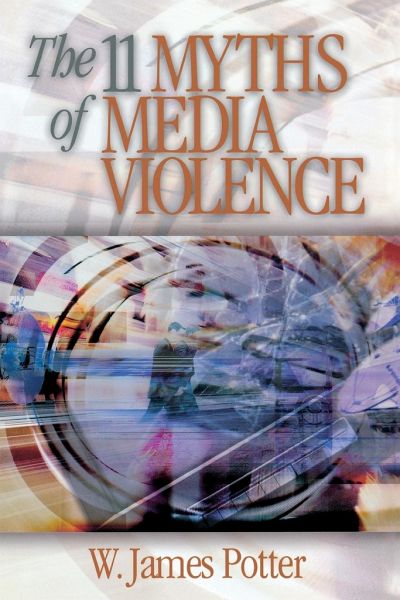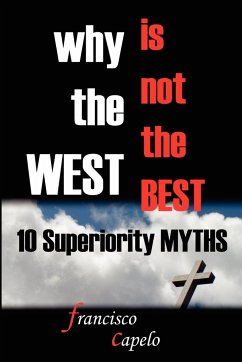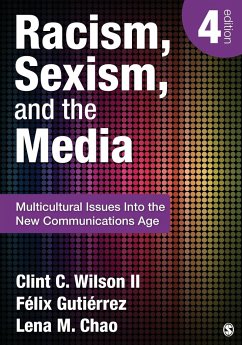
The 11 Myths of Media Violence
Versandkostenfrei!
Versandfertig in 1-2 Wochen
128,99 €
inkl. MwSt.

PAYBACK Punkte
64 °P sammeln!
The 11 Myths of Media Violence clearly explains why media violence has not only been allowed but encouraged to escalate. Esteemed author W. James Potter challenges many of our assumptions about the relationship between media and violence. He argues that these assumptions are the primary barriers preventing us from confronting the issue of violence in films, TV, and video games. Students and scholars of Mass Media, Communications, Film, and Sociology will find The 11 Myths of Media Violence inspires passionate discussion and innovative research. Consumer activists, teachers, and families will f...
The 11 Myths of Media Violence clearly explains why media violence has not only been allowed but encouraged to escalate. Esteemed author W. James Potter challenges many of our assumptions about the relationship between media and violence. He argues that these assumptions are the primary barriers preventing us from confronting the issue of violence in films, TV, and video games. Students and scholars of Mass Media, Communications, Film, and Sociology will find The 11 Myths of Media Violence inspires passionate discussion and innovative research. Consumer activists, teachers, and families will find it an essential resource and invaluable step toward finding solutions to this critical social issue.














